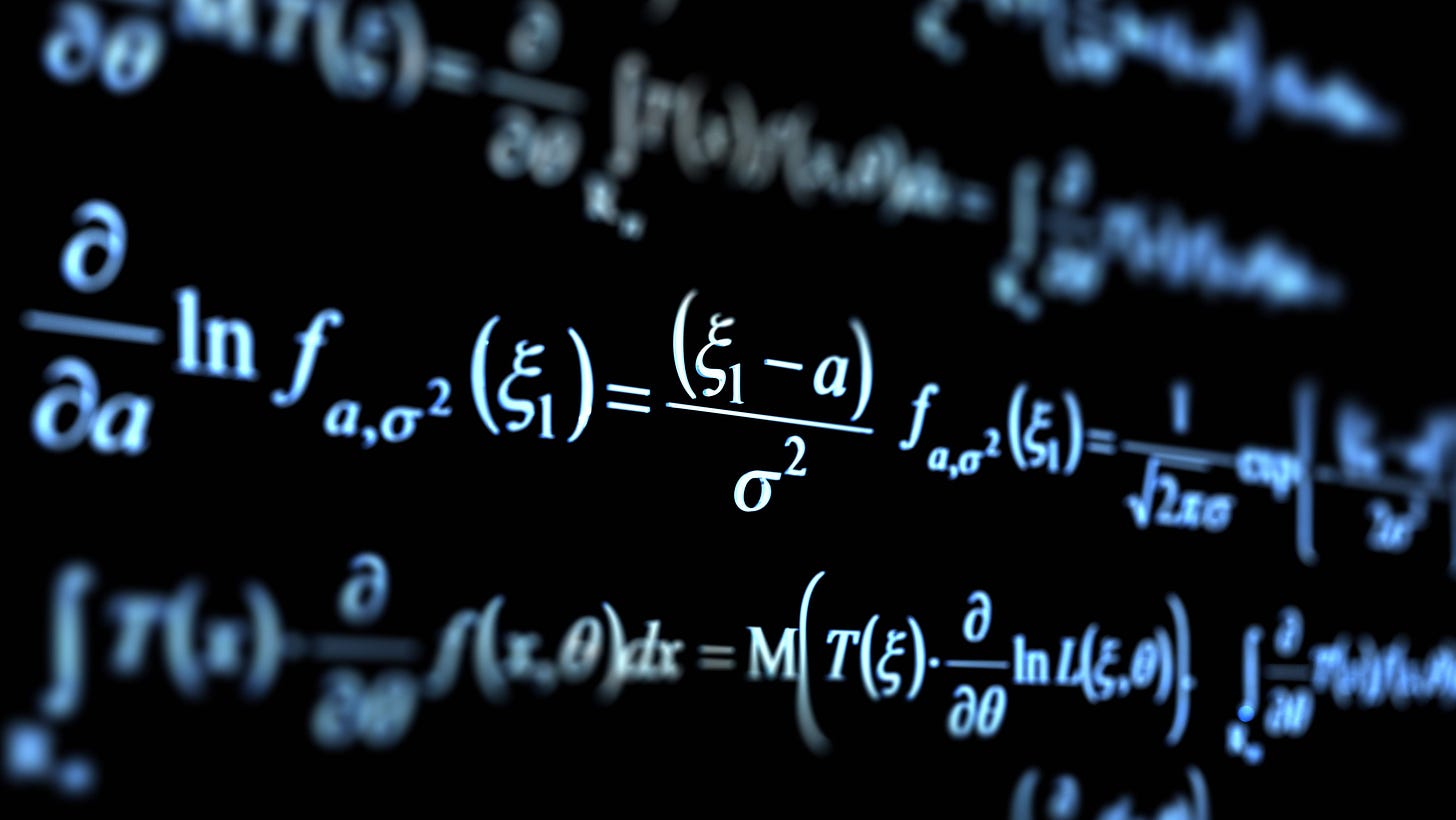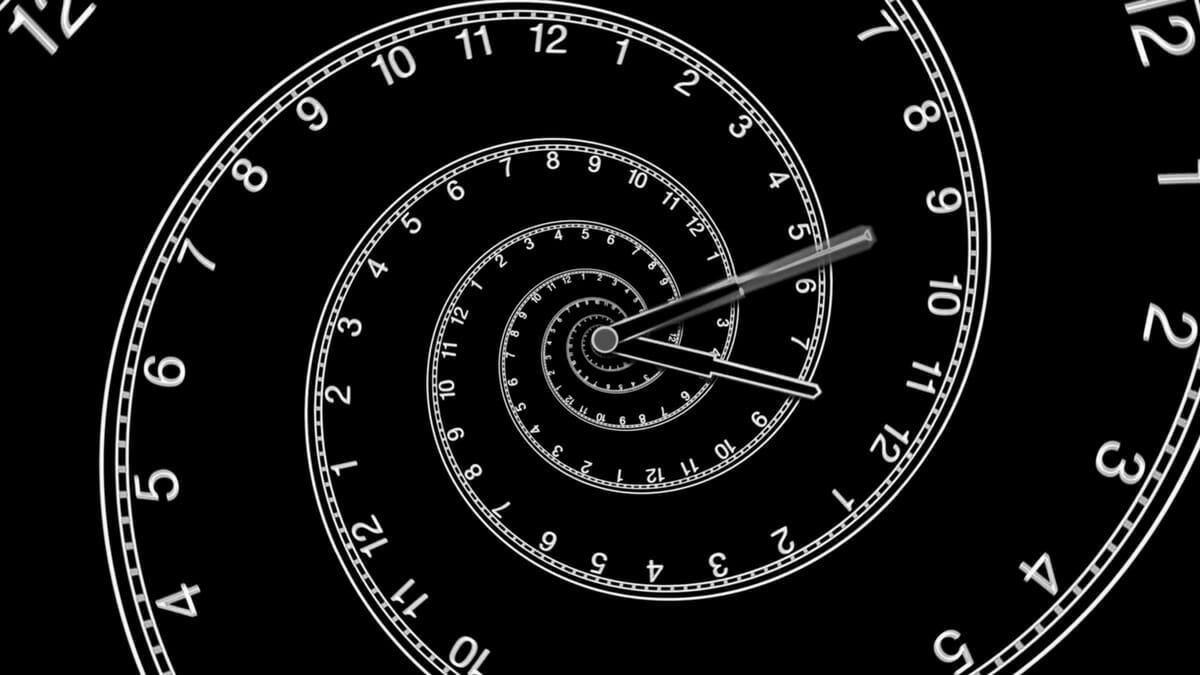Math is not what you think
Math is not what you think it is. I think that holds for everybody, even real mathematicians, whose understanding of it is vastly beyond what the rest of us can muster. Math is not just a different thing to different people; I think it’s even a different thing to to same person person at different times —that is, if there is such a thing as the same person at different times (remind me to return to this question).

It’s been different things for me, at least. I really loved math when I was in elementary school. It was easy for me, not for any reason I can take credit for. The results weren’t always great, of course — in first or second grade I was moved to a “special” math class. I remember thinking I was being punished, because all my friends stayed in our regular classroom while I had to go down the hall to learn what I think they called “conceptual math” or something. It was several years before I found out — or worked out for myself; don’t recall which — that I was in what today would be called a ‘gifted and talented’ class. All I knew was that I didn’t get to stay with my friends during math, and while they were memorizing multiplication tables I was working on…well, something. To this day I have to think about it to multiply anything by seven.
After graduate school, math was a path to a job. I had a brand-new master’s degree in organizational communication, a wife, a baby on the way, and a strong need for money. I’d done quite a bit of statistical work to get my degree, and that was what got me a good-paying job doing surveys and other statistics-based research for insurance companies. In retrospect, math probably steered me wrong. Although I kept that job for ten years, I hated nearly every minute of it.
Part of hating that job was realizing that while math came pretty easily to me (up to a point at least), it wasn’t my calling. I didn’t love it. Being innately good at math had always brought me recognition and a certain kind of status (in school, for example), and that had tended to steer me toward doing more of it. But I didn’t love it.
Maybe I just didn’t learn to love it. Love must be, I think, something you learn, at least sometimes. The romantic idea of love is different; “love at first sight” is more the idea, whether you’re talking about people or careers or sports or hobbies. That first sight thing seems to hold, sometimes, for some people. But I wonder how often love is instead something you learn — maybe without even noticing, so when you realize it, it feels like it happens at a glance. What’s been happening in the background, maybe subconsciously, is that you’ve been learning to love the external rewards, or something about the process, or even the people you’re involved with. I think it might be like the “ten thousand hours” idea of becoming an expert at something (that shallow meme that it takes 10K hours for you to become a pro at whatever activity or pursuit you’re pursuing).

Let’s call it the “thousand hours to love” process. Find something you’ve got some sort of natural affinity for, involve yourself with it (or them) and you may find that without conscious effort or notice, you come to love it. Out of all the instances of people professing to love their sport or field of work or hobby, I think something like this might be involved in more than half. Maybe far more than half.
Selena Gomez sang “the heart wants what it wants,” and decades earlier Woody Allen used that as his justification for marrying Soon Yi. She was, of course, the daughter of Allen’s long-time “partner” (sort of), Mia Farrow. It’s awkward, and partly because of that Allen is now generally regarded as a creep. He seems to have engaged in plenty of other creepy behavior over the years, too. But the notion that “the heart wants what it wants” is a very old idea that goes back far earlier than even Woody Allen, ancient as that guy is getting to be.
If “the heart wants what it wants,” though, where do those wants come from? If you’re born with a particular affinity for math, or for running, or with the hand-eye coordination and sensibility to draw or paint well, is your heart also born with its wants? I think it’s more likely the answer is no. The heart learns what it wants. But the process is hidden from us.
Math contains a great deal that’s hidden from us. How much is hidden, and in what way, is as varied and strange as our individual conceptions of math itself. The more you learn, the more of its depths and complexities are revealed to you — and that sequential revelation can be the very thing that teaches your heart. It can be a real rush — sort of an endorphin high — when you suddenly grasp a concept you’ve struggled with. The thing about math is that so many of those moments are possible. Math contains more mysteries than nearly anything, of course, so if that’s the kind of thing your heart is disposed to learn to love, there might be more opportunities than you’ll find anywhere else.
It’s not just in your head, then. Math is not what you think.
